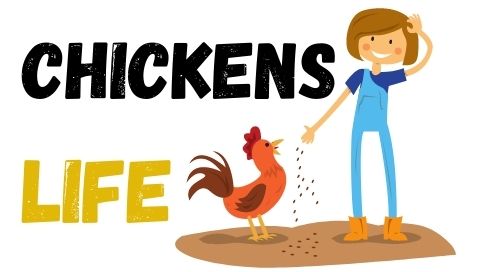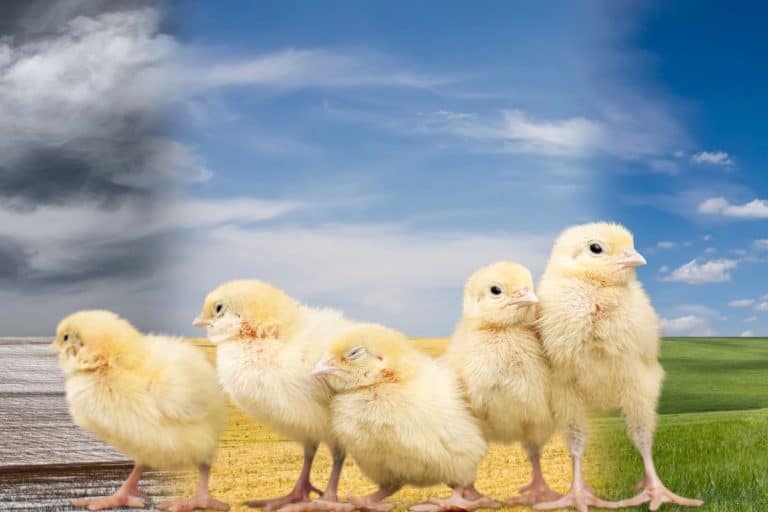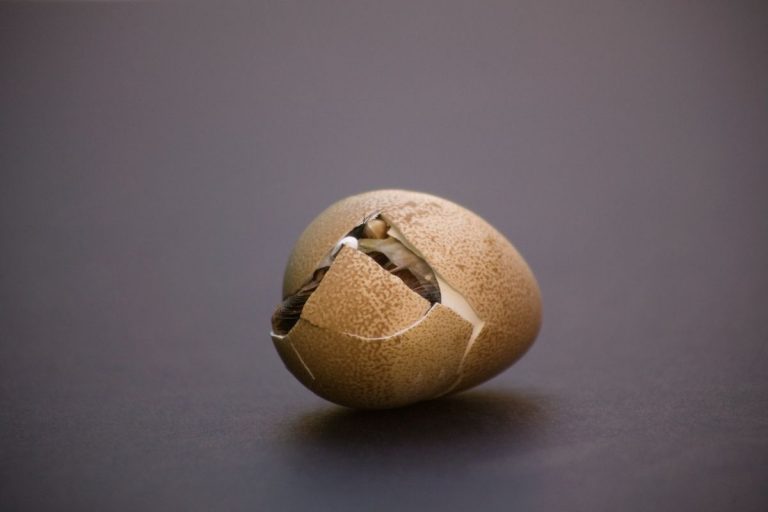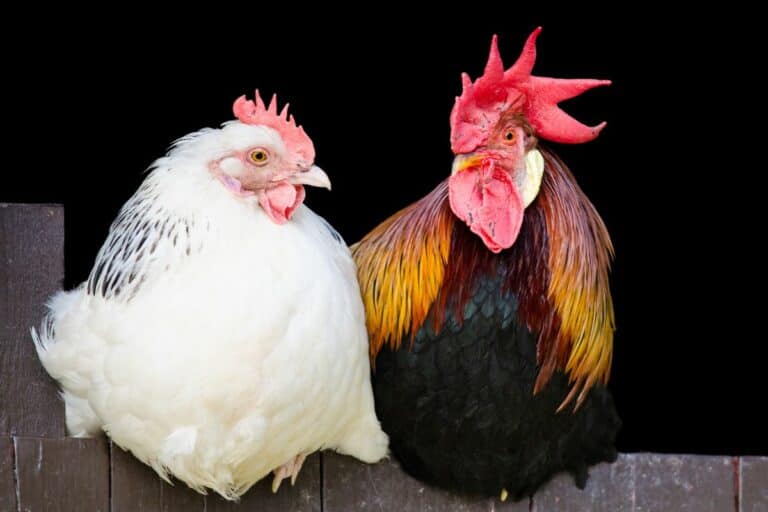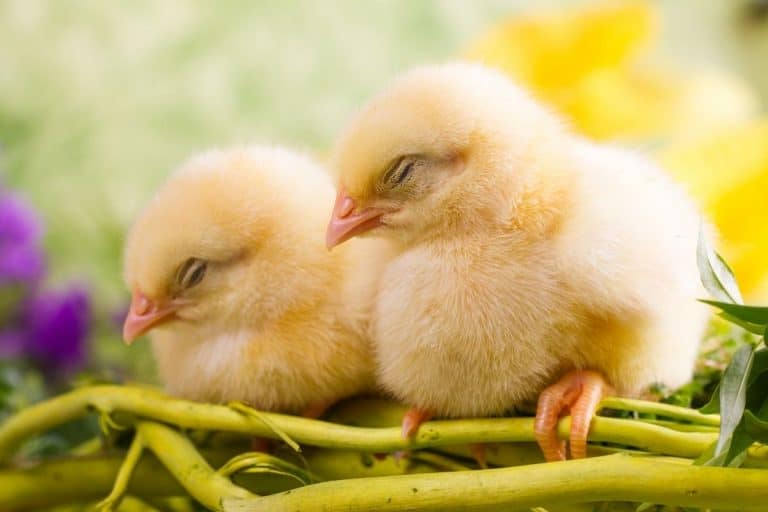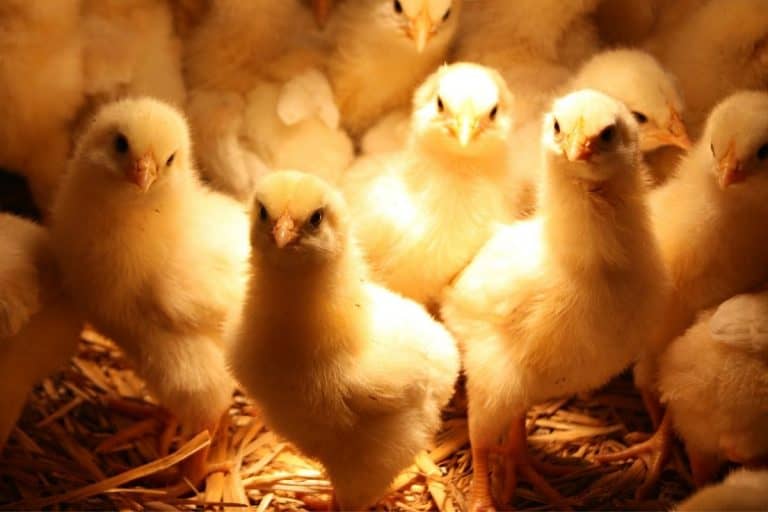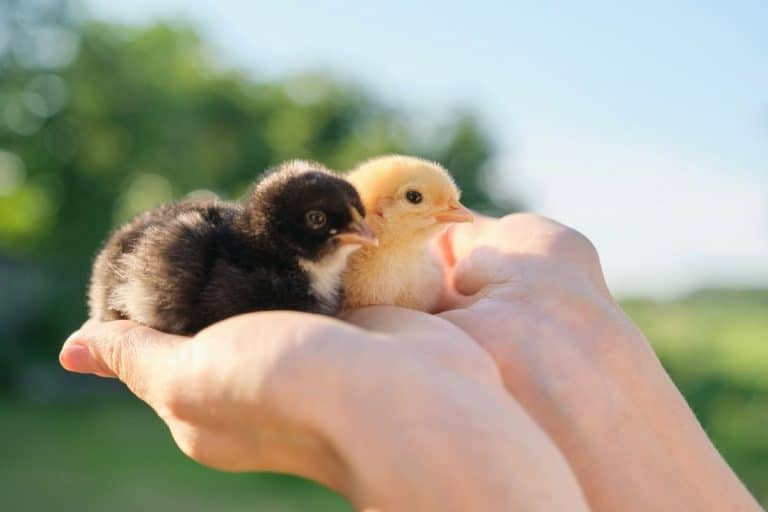How Long Can Chicks Stay In The Incubator? (After hatching)
It’s a very exciting experience to witness chicks hatch, especially if you’ve been waiting for this moment for the past 21 days. However, you must also be fully prepared for what to do after your baby chicks begin to hatch.
In general, chicks can stay in the incubator for 12 to 24 hours after hatching, but no longer than that. They do not need food or water during this time. They will rest, and the incubator’s temperature will aid in helping their feathers and fluff to completely dry out.
Hatching chicken eggs in the incubator might not be as simple as it sounds, especially if you are a beginner and are unsure of what to do. Read on for a detailed explanation of how long chicks should be kept in incubators after hatching and what steps you should follow next.
But before you dive into this topic, did you know I've got a page packed with my go-to chicken stuff? From the best feed to handy tools, it's all there. Don't you want the best for your flock? Check it out right here.
What To Do After Hatching?
Give your chicks some time after hatching, typically 12 to 24 hours, so they can dry out their down feathers. They will also rest during this time frame because chicks spend a lot of energy while they hatch out of the egg.

If your chicks look fluffy and dry after about 12 hours of hatching and you can see them moving around actively, you can transfer them to the brooder. Try to move them in pairs of two so that you can lessen the stress. To avoid repeatedly opening the incubator, chicks should be transferred in a single attempt.
It is recommended to never repeatedly open and shut the incubator doors in an attempt to hold the chicks because doing so can induce unwanted stress in the young birds and make them more susceptible to hyperthermiaif they are not completely dry.
Opening and closing the incubator door can also have harmful effects on other eggs that have not yet hatched.
Wait, I have some recommendations for you!
Before you go any further, I want you to take a look at some of the recommendations I've handpicked for you. I think these are essential items you should have for your chickens flock. You can check them out and buy them directly from Amazon.
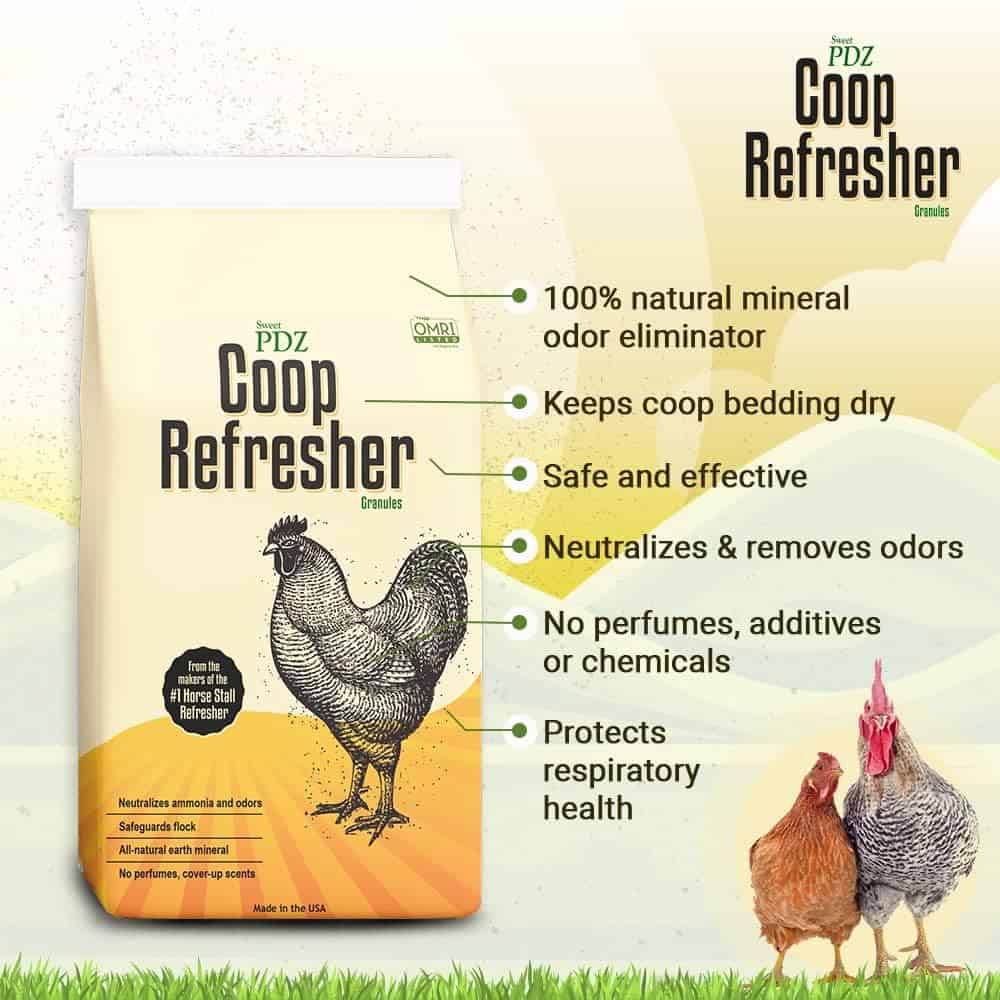 | 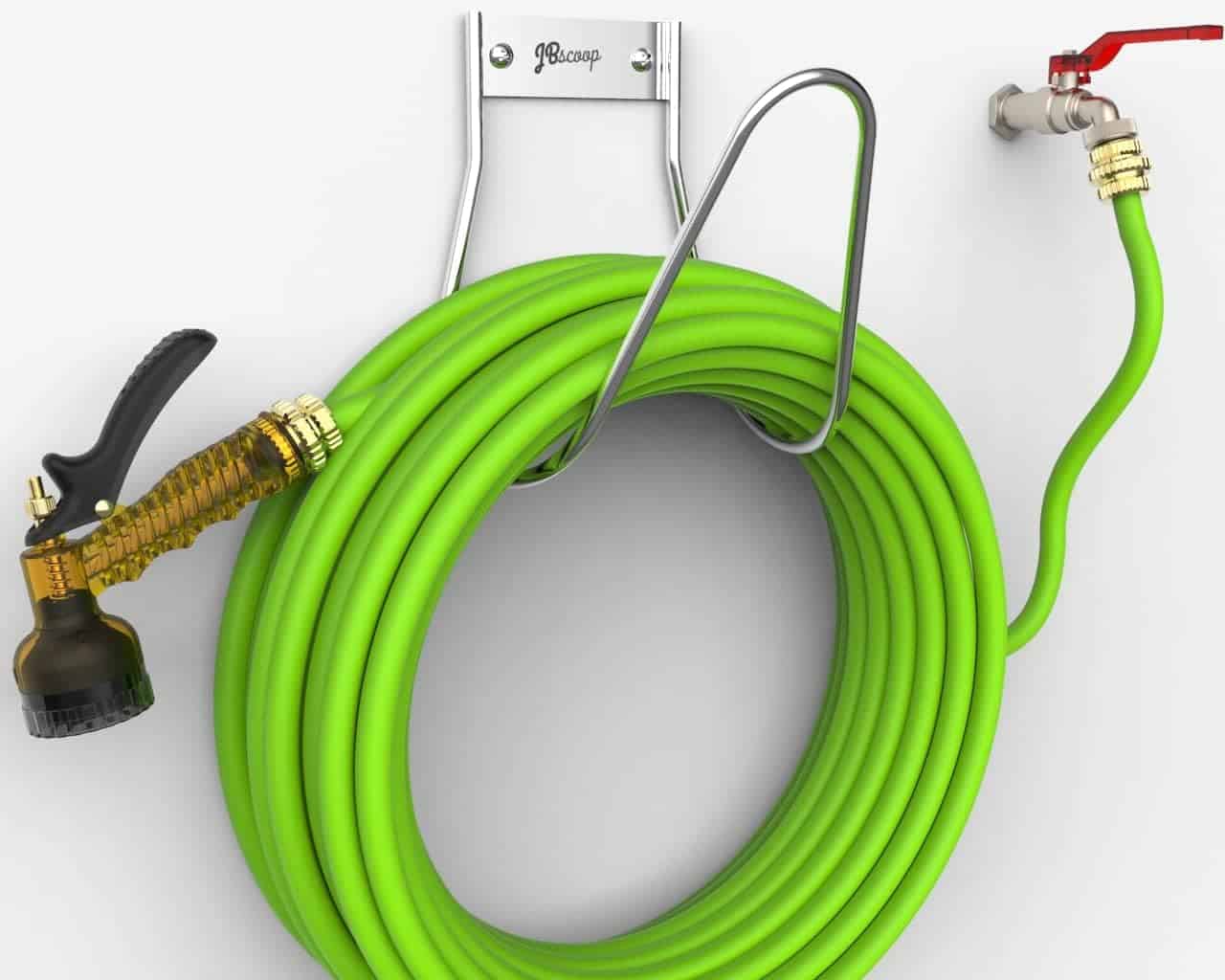 | 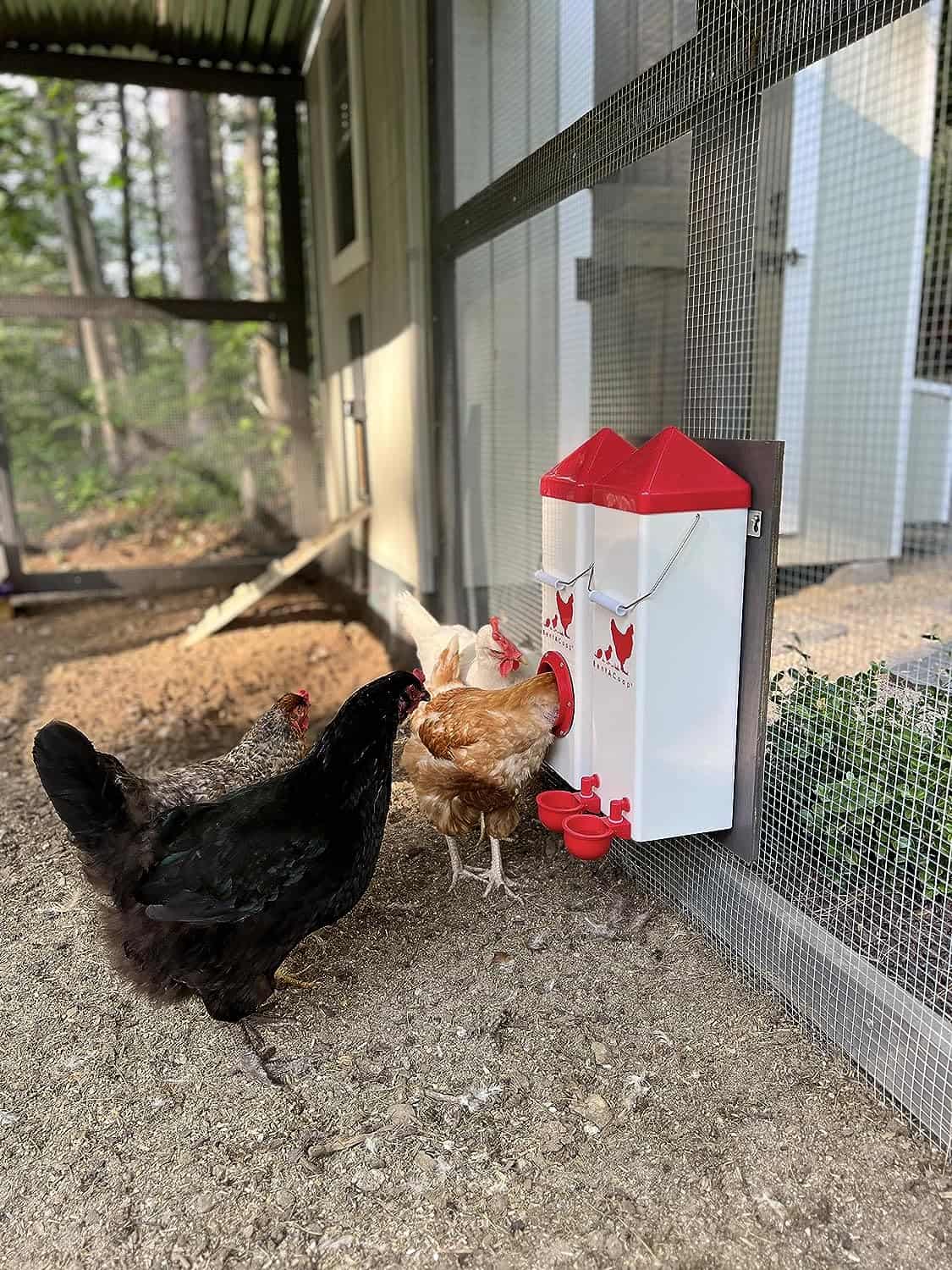 | 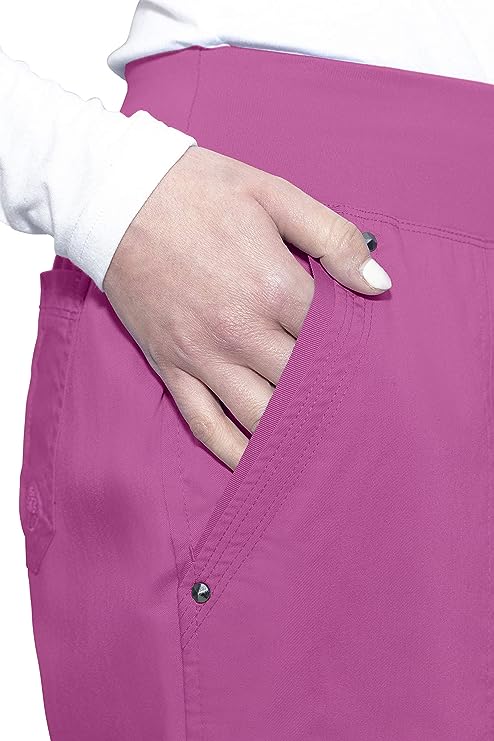 |
| Essential accessory for your coop | No more tripping over hoses! | Predator protection made easy | Comfort + style is possible |
How Long Can I Leave Chicks In An Incubator?
Ideally, chicks can stay a maximum of 24 hours in the incubator after hatching.
However, it is not recommended to keep the chicks in the incubator for longer than 24 hours as the high temperature in the incubator could have a detrimental effect on their health and can cause them to become overheated and dehydrated.
When a chick starts to appear active and fluffy or when its down feathers have completely dried off, usually within 12 hours, you can remove it from the incubator.
What To Do With Chicks After They Hatch In The Incubator?
After hatching, the chicks must remain in the incubator for some time, until they are completely dry and active. The chicks must then be moved to the brooder box or, in a large setup, the brooding area after spending time in the incubator (something like that is perfect).
It is in the brooder box or brooding area where the chicks will receive their first taste of chick feed along with fresh clean water. They do not require food or water to survive during their 12 to 24-hour stay in the incubator.
For the first week, the brooder box’s temperature should be around 32 °C (90 °F), and as the chicks get bigger, it should be lowered in accordance with their growth. Before the chicks are removed from the incubators, the bedding, feeders, and waterlines must all be in good working order, and the ventilation, humidity, and temperature must all be suitable.
Can You Open The Incubator During Hatching?
It is not advised to open the incubator during the hatching but you can occasionally open the incubator to remove chicks that have been in there for longer than 12 hours, but in some cases, you can wait up to 20 hours to ensure that the maximum number of chicks have hatched so they can be sent to the brooding box in a single go and you only need to open the incubator once.
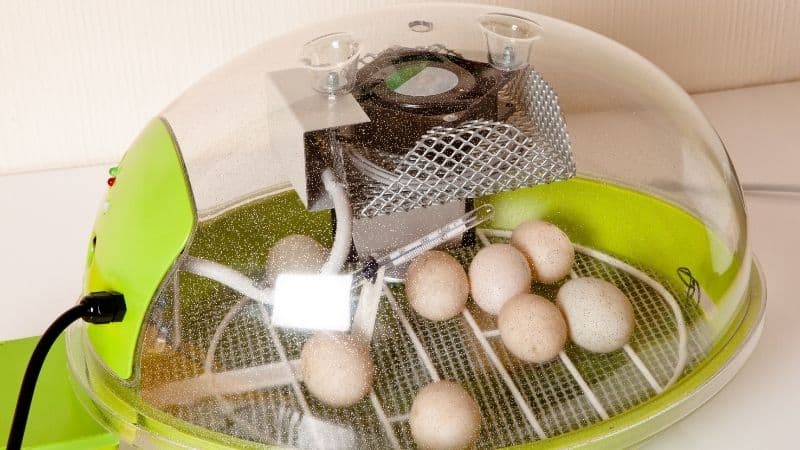
If opening the incubator is unavoidable, try reducing how often you do it so that you can maximize hatchability.
Opening the incubator will result in abrupt fluctuations in the humidity and air speed, which will cause the shell membrane to become leathery and stiff, making it more challenging for the hatching chick to puncture this membrane.
Visit our in-depth article on “opening the incubator during hatching” for more detail.
Can I Open The Incubator After Hatching? When?
In the ideal situation, the incubator should only be opened when the lock-down period has ended (typically the last three days) or when all or the majority of the eggs have hatched and the chicks can be seen running around in the incubator, but this may not always happen.
Every once in a while, one, two, or more chicks will hatch before the rest of the eggs, and you will need to open the incubator to remove them after a certain time.
Can I Feed The Chicks In The Incubator?
Chicks should not be given food or water while in the incubator because they can comfortably survive without any kind of nutrition for up to 48 to 72 hours after hatching. Just before the chicks hatch from the egg, their bodies absorb the yolk sac, which is rich in fats and other nutrients.
Due to their ability to survive without food and water for a while after hatching, some breeders and hatcheries ship chicks across the country in boxes as soon as they are hatched.
What Happens If You Transfer the Chicks From the Incubator to the Brooder Too Early?
If you transfer your chicks from the incubator to the brooder too soon, a lot can go wrong. Some of the consequences of moving chicks too early from the incubator to the brooder include the following:
Wet down feathers
Early on, a high incubator temperature is advantageous for chicks because it speeds up the drying of their feathers. Your chicks won’t have enough time to dry their down feathers if you move them too early.
Chilling/hyperthermia
There is a high likelihood that the chicks will experience chilling or hyperthermia if they are moved to the brooder too soon while having wet feathers. Even though you might believe that the temperature in the brooder is appropriate for them, in reality, the temperature is only appropriate for a chick that has completely dry feathers.
Bedding material will stick to the body
The bedding material may stick to the chicks’ bodies if they are moved to the brooder too soon while still having some wet feathers on their bodies. They will have difficulty moving and may not be able to compete for food and water with other chicks. The bedding material adhered to the chick’s body as it dries out will become permanently attached, making removal painful for the chick.
Increased Incidence Of Infections And Omphalitis
If the chicks are moved to the brooder too soon, they might not have had enough rest, which can make them stressed and the chilling effect will also be a stress factor. When all of these factors are present, a chick’s immunity will be hampered, and infections may result. Wet bodies and feathers can also increase the risk of omphalitis, or navel inflammation, in chicks.
When Should I Turn Off My Incubator?
Turning off the incubator, especially during the lockdown phase, will cause temperature, oxygen, and humidity fluctuations, which may have a detrimental effect on the hatching eggs, it is best to leave it running until all the eggs have hatched, excluding those that did not make it through.
However, if there is a power outage or a technical problem with the incubator, embryos in the eggs have been known to survive for more than 12 hours, but you must solve the problem quickly.
Should I Remove Eggshells From The Incubator?
Removing the shells during the hatching process is not something I would advise.
Since removing the shells will prolong the period during which the incubator door remains open and can cause more problems for the eggs, it is not worth it.
Once all of the eggs have hatched and the chickens have been safely transported to the brooding area, the shells can be easily removed.
Where Do You Keep Newly Hatched Chicks?
The newly hatched chicks are kept in a brooder box or a brooding area. To give the chicks extra warmth and plenty of room to move around, this area is specifically created for them with a slightly raised temperature so the chicks can drink, eat, and grow properly.
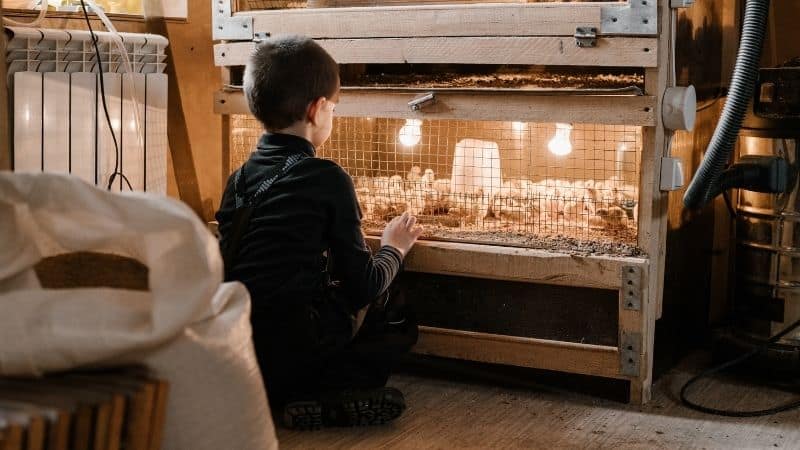
For the chicks’ added comfort, there is also soft bedding material on the floor. The chicks are usually kept in the brooder for 3 to 6 weeks, depending on the outside weather and the breed.
If My Chicks Hatch Overnight, Will They Survive In The Incubator?
Chicks can easily survive in the incubator for up to 24 hours, so if they hatched during the night, you would see healthy and active chicks moving around in the incubator first thing in the morning.
I hope I answered all your questions, and if everything goes well, you can now read my other articles on this topic:
- Why Is My Baby Chick Losing Feathers? (11 reasons)
- Do Baby Chickens Need A Heat Lamp?
- Do Baby Chickens Sleep A Lot? (Should you worry about it?)

